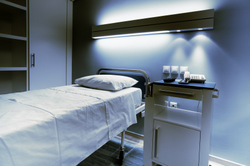
Thirty days is a time frame used to define the initial response to therapies across many medical disciplines. For heart failure, a 30-day readmission rate is used as an indicator of hospital quality and for reimbursement.
But that time line is arbitrary and may be detrimental to patients, wrote Northwestern Medicine® cardiologist Mihai Gheorghiade, MD, the corresponding author of an opinion article in the Journal of the American Medical Association published January 23.
“We feel that 30-day mark is not a fair performance measure,” said Gheorghiade, professor of medicine and of surgery at Northwestern University Feinberg School of Medicine and a physician at Northwestern Memorial Hospital.
Heart failure is often related to a weak heart muscle with reduced pumping capacity. Patients often have difficulty breathing and tolerating exercise. Many require hospitalization as a result of their severe symptoms.
Approximately 40 percent of those heart failure patients are rehospitalized soon after discharge. But only half of that group is rehospitalized for heart failure. Others are rehospitalized for other underlying medical conditions, noted Gheorghiade.
“If patients are rehospitalized independent of the cause within 30 days post-discharge, the hospitals will be penalized from a monetary and reputation aspect,” Gheorghiade said. “However, heart failure is a chronic condition and rehospitalization after discharge continues to be high beyond 30 days.”
If hospitals are penalized for rehospitalization, they may be reluctant to admit patients in need of hospitalization, he pointed out.
“This may not be in the interest of our patients,” Gheorghiade said.
He also pointed out that a hospital providing good care is less likely to have patients dying and will have a high rehospitalization rate. In contrast, hospitals providing below standard care will have high mortality and low readmissions.






